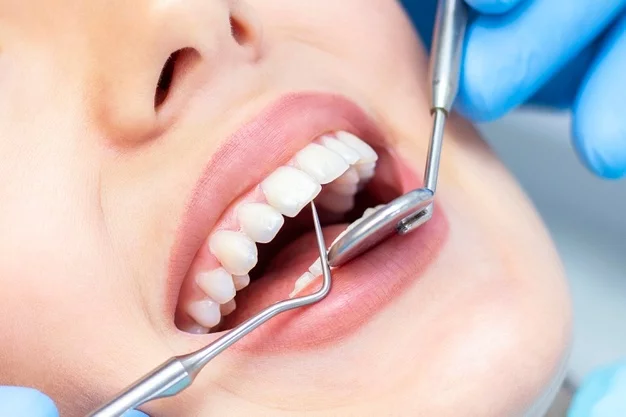What to Do to Reduce Toothache: Fast Home Remedies & Pro Tips
A sudden, sharp toothache can bring your day to a halt. In fact, it’s one of the most painful and distracting experiences you can have. But what to do to reduce toothache pain quickly? When you face this kind of discomfort, you need an immediate solution, not one for tomorrow. Consequently, this comprehensive guide provides you with fast home remedies and essential information on when to seek professional dental care. In addition, we’ll explore the underlying causes of tooth pain and outline the professional treatments that provide lasting relief.
First and foremost, it’s vital to recognize that a toothache is a symptom, not a condition itself. It indicates an underlying problem that requires attention. Therefore, while home remedies offer temporary relief, they don’t fix the root cause. This could be a simple issue like a piece of food stuck between your teeth or something more serious, for instance, a cavity, gum disease, or a cracked tooth. It’s important to understand the pain’s nature. For instance, is the pain sharp or dull? Likewise, does it pulse or ache? The answers to these questions can help you determine the severity of your issue.
Immediate Home Remedies to Reduce Toothache
Before you can get to a dentist, you need to manage the pain. Here are some of the most effective and widely recommended home remedies that can provide quick relief. Ultimately, these solutions are a temporary bridge to professional care.
Applying a Cold Compress for Toothache Relief
A **cold compress** is your first line of defense. First, apply an ice pack or a bag of frozen vegetables wrapped in a cloth to your cheek over the painful area for 15-20 minutes at a time. This helps to numb the area and constrict blood vessels, which in turn reduces swelling and pain. You can repeat this every few hours. This method, furthermore, is especially helpful for pain caused by injury or swelling.
Rinsing with Saltwater for Pain
Another simple yet powerful remedy is a **saltwater rinse**. To use it, dissolve a teaspoon of salt in a glass of warm water and use it as a mouthwash. Swish it around in your mouth, paying special attention to the affected area, then spit it out. Saltwater naturally disinfects and helps to loosen debris that may be caught between your teeth. Moreover, it helps reduce inflammation and can promote healing.
Using Clove Oil for a Quick Numbing Effect
For a more powerful, natural anesthetic, consider **clove oil**. Eugenol, a compound in clove oil, has natural antiseptic and analgesic properties. Simply dab a small amount of clove oil on a cotton ball and apply it directly to the affected tooth and surrounding gum. Use it sparingly, since a little goes a long way. This provides a temporary solution to reduce toothache pain significantly, helping you get through the next few hours until you can see a professional.
Understanding the Science Behind the Remedies
Understanding why these home remedies work can give you confidence in their application. For example, cold therapy works by reducing blood flow to the painful area, which decreases inflammation and swelling. This process also slows nerve conduction, effectively numbing the pain signals. Similarly, saltwater rinses create a hypertonic environment in the mouth. This draws fluid out of inflamed tissues, which reduces swelling. Furthermore, the salt acts as a mild antiseptic, helping to combat any bacteria that might be contributing to the pain.
The Power of Eugenol in Clove Oil
Meanwhile, clove oil’s active component, eugenol, has a long history in dentistry. In fact, it works by blocking nerve signals and acting as a mild antiseptic. For these reasons, many dentists use a form of eugenol in dental cements and fillings. These remedies are not just old wives’ tales; they are backed by scientific principles that temporarily alleviate pain and inflammation while you wait for professional care. Ultimately, knowing what to do to reduce toothache means understanding these simple, yet effective, mechanisms.
When to See a Dentist for Your Toothache
While home remedies provide temporary comfort, they are never a long-term solution. Consequently, you should see a dentist as soon as possible if your toothache persists for more than a day or two. Other warning signs include fever, earache, pain upon opening your mouth, and pus or a foul taste. These symptoms often signal a more serious issue that only a dental professional can diagnose and treat. As a result, delaying treatment can lead to more severe complications, including a dental abscess or a widespread infection.
The Importance of a Professional Diagnosis
A dentist can pinpoint the exact cause of your pain using x-rays and a comprehensive exam. They might discover a deep cavity, a dental abscess, or even an impacted wisdom tooth. Therefore, they can recommend a precise treatment plan to solve the problem permanently.
For a seamless experience, we invite you to explore our network of trusted dental professionals. You can find highly skilled doctors in our directory like Dr. Murtaza Makasarwala. Ultimately, visiting wmedtour.com helps you connect with the right expert for your needs.
Common Causes of a Toothache
Knowing what to do to reduce toothache is just part of the solution; you also need to understand the source of the pain. To begin with, the most common cause is tooth decay, which creates cavities. Left untreated, a cavity can grow and reach the inner pulp of the tooth, where the nerves are located, causing intense pain. Other culprits include cracked teeth, which can expose the sensitive inner layer, and dental abscesses—a pocket of pus that forms at the tip of the tooth root due to a bacterial infection.
Less Common Causes and Contributing Factors
Furthermore, gum disease, known as periodontitis, can also cause tooth pain by damaging the surrounding tissues and bone that support your teeth. In addition, an impacted wisdom tooth or bruxism (teeth grinding) are also common sources of dental pain. Therefore, identifying the cause with a professional is the first step toward finding lasting relief. For more information on dental health, the World Health Organization offers valuable resources.
Advanced Treatments for Lasting Toothache Relief
Depending on the cause, your dentist might recommend several professional treatments. First, a simple **filling** is a very common procedure for small to medium-sized cavities. They remove the decayed part of the tooth and fill it with a composite or amalgam material. For more extensive decay, a **crown** might be necessary to restore the tooth’s shape, size, and strength.
For severe decay that has reached the tooth’s pulp, a **root canal** is the recommended procedure. This involves removing the infected pulp, cleaning and shaping the inner tooth chamber, and then filling and sealing it. While a root canal may sound intimidating, it is a highly effective way to save a tooth that would otherwise need extraction. In cases of a dental abscess, a dentist will drain the pus to relieve the pressure and pain. You must follow their instructions carefully to prevent further infection.
Professional Dental Treatment Comparison
| Treatment | Purpose | Typical Cost (USD) | Duration |
|---|---|---|---|
| Filling | Repair a cavity | $75 – $200 | 15-30 minutes |
| Crown | Restore tooth shape and strength | $800 – $1,500 | 2-3 visits |
| Root Canal | Treat infected pulp | $700 – $1,500 | 1-2 visits |
| Extraction | Remove a non-savable tooth | $75 – $300 | 30-60 minutes |
Prevention is Key to Avoiding a Toothache
After you have treated the cause of your toothache, you should focus on prevention. Maintaining good oral hygiene is your best defense against future pain. The American Dental Association recommends brushing your teeth twice a day with fluoride toothpaste. Furthermore, flossing once a day removes plaque and food particles from between your teeth and under the gumline where a toothbrush can’t reach. In addition, you should maintain a balanced diet and limit sugary drinks and snacks, which can contribute to tooth decay.
Regular dental check-ups are also crucial. Visiting your dentist at least twice a year allows them to spot problems early before they become severe. The Mayo Clinic provides a guide on what to expect during a dental exam. As a result, they can identify small cavities, signs of gum disease, or other issues that you might not even notice. Taking these proactive steps, therefore, can help you avoid the pain and discomfort of a toothache altogether. The Centers for Disease Control and Prevention provides more information on adult oral health.
Final Thoughts on How to Reduce Toothache
Learning what to do to reduce toothache pain quickly is a crucial skill for anyone. While cold compresses, saltwater rinses, and clove oil can offer fast, temporary relief, they are not a substitute for professional care. A toothache signals an underlying problem that requires a dentist’s expertise. Furthermore, ignoring the signs can lead to more serious and complicated issues later on.
If you are currently experiencing dental pain or need a routine check-up, we encourage you to seek a professional. Our platform connects you with top-tier dental professionals worldwide who can provide a personalized and effective treatment plan. Do not let tooth pain control your life—take the first step toward lasting relief and a healthier smile.
WebMD also offers a comprehensive guide on this topic. Moreover, for more general medical advice, you can consult a reputable source such as the National Institutes of Health.
Frequently Asked Questions
The fastest home remedy is a cold compress. Apply an ice pack wrapped in a towel to your cheek for 15-20 minutes. The cold constricts blood vessels and numbs the area, reducing both pain and swelling.
Without professional treatment, a toothache can last indefinitely and may even worsen over time. Home remedies only provide temporary relief and do not fix the underlying cause, which could be a cavity or an infection.
Yes, over-the-counter pain relievers like ibuprofen (Advil, Motrin) or acetaminophen (Tylenol) are effective for managing toothache pain. Follow the dosage instructions on the package and consult your doctor or dentist before use.
Yes, a saltwater rinse is highly effective. It acts as a natural disinfectant, helps to remove food particles, and reduces swelling. Swish a teaspoon of salt dissolved in warm water around your mouth for about 30 seconds.
Yes, clove oil contains eugenol, a natural anesthetic and antiseptic. It can provide temporary numbing relief when applied directly to the painful tooth with a cotton ball. Use it sparingly, as a small amount is very potent.
You should see a dentist immediately if your toothache is severe, lasts more than a day or two, or is accompanied by a fever, earache, or swelling in your face or jaw.
Yes, a toothache can indicate a serious issue like a dental abscess, gum disease, or a cracked tooth. It is your body’s way of telling you something is wrong and requires professional attention.
A dental abscess is a pocket of pus that forms at the tip of a tooth’s root due to a bacterial infection. It can cause severe throbbing pain and swelling. It is a serious condition that requires immediate dental treatment.
Gently brushing your teeth and flossing can help remove any food particles or debris that might be trapped and causing pressure. However, it will not fix a deeper issue like a cavity.
Sensitivity to sweets often indicates tooth decay or a cavity. The sugar can irritate the nerves in the tooth, causing a sharp, temporary pain. It is a clear sign that you need to visit a dentist.
Yes, a sinus infection (sinusitis) can cause referred pain in your upper teeth, making it feel like a toothache. The pressure from the inflamed sinuses can press down on the tooth roots.
A root canal is a dental procedure to treat an infected or damaged tooth. The dentist removes the infected pulp, cleans and shapes the inside of the tooth, and then seals it to save the tooth from extraction.
Yes, an impacted wisdom tooth can cause a great deal of pain. It can put pressure on nearby teeth, become infected, or cause the gums to swell, all of which lead to severe discomfort.
A dental cavity is a hole in your tooth caused by decay. A toothache is the pain you feel as a symptom of a cavity or other dental issue. A cavity does not always cause a toothache, especially in its early stages.
Yes, chronic stress can lead to teeth grinding (bruxism) and clenching, especially at night. This habit can wear down the teeth and jaw, leading to pain that can feel like a toothache.
Never attempt to pull out an adult tooth on your own. You could cause a severe infection, nerve damage, or a broken jaw. Always have a professional dentist remove a tooth.
Avoid very hot, cold, sugary, or hard foods. These can irritate an already sensitive tooth and increase the pain. Stick to soft foods and lukewarm beverages until you can see a dentist.
The best prevention is a good oral hygiene routine. Brush twice a day, floss once a day, use mouthwash, and visit your dentist for regular check-ups. A healthy diet also helps.
In very rare cases, pain from a heart attack can be felt in the jaw or teeth, though it is not a common primary symptom. If you have other symptoms like chest pain, shortness of breath, or arm pain, seek emergency medical attention.
Fluoride strengthens tooth enamel, making it more resistant to decay. It can also reverse the early stages of tooth decay. Regular use of fluoride toothpaste is a key part of cavity prevention.




